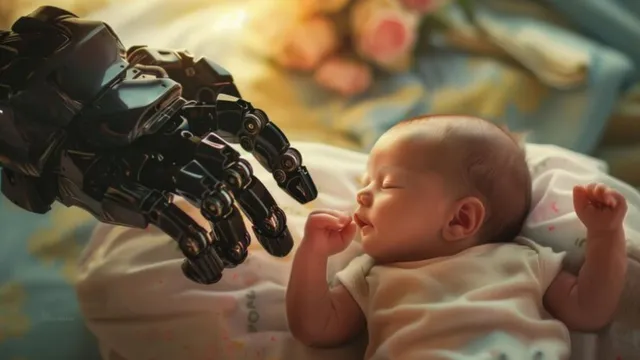- By Supratik Das
- Sun, 06 Jul 2025 12:24 PM (IST)
- Source:JND
In a major medical milestone, a couple struggling with infertility for nearly two decades has conceived with the help of an AI-based fertility technology developed by the Columbia University Fertility Center in New York, according to reports by the NY Post. The revolutionary technology, known as STAR (Sperm Tracking and Recovery), has offered fresh hope to men with azoospermia, a condition which occurs in up to 15 per cent of men who are infertile and is commonly thought to render them completely infertile. "A semen sample can look absolutely normal, yet under the microscope, it might consist of only cellular debris with no discernible sperm," said Dr Zev Williams, director of the Columbia University Fertility Center, in a press release.
Technology borrowed from Astrophysics to Identify Sperm
Men with azoospermia have few alternatives, use donor sperm or endure radical surgeries to remove testicular tissue in hopes of finding healthy sperm cells. Dr Williams and his team spent five years developing the STAR system by adapting AI technology originally used by astrophysicists to detect distant planets and stars. “We’re using the same technologies that are used to search for life in the universe to help create new life here on Earth,” Dr Williams told Today.com. The AI-powered system reads high-resolution images of semen samples, taking in millions of images in minutes. It then identifies fertile sperm cells with great accuracy even in samples in which none were detected manually by embryologists.
First Successful Pregnancy Reported In March 2025
In March 2025, a 38-year-old woman named only Rosie became the first person to become pregnant with the STAR technique. Her husband had azoospermia and donated a semen sample which was scanned by STAR taking more than 8 million images and finding three good sperm cells in one hour. The sperm were pulled robotically to prevent damage and were used to fertilise Rosie's eggs. She is currently five months pregnant and will give birth in December 2025. "I still wake up and can't believe it's true," Rosie said to Time Magazine. "There really was nothing else out there for us. This AI breakthrough gave us hope when we had none left," she added.
ALSO READ: A Decade Of Digital India, Writes PM Narendra Modi
Affordable Alternative To Conventional IVF
The price of utilizing the STAR system for sperm identification, isolation, and freezing is said to be barely under 3,000 USD. A typical IVF cycle in the US, on the other hand, costs anywhere from 12,400 USD to 15,000 USD, not counting extra costs for drugs and genetic testing, says GoodRx. The STAR technology is now only available at Columbia University Fertility Center.
Though the advance has potential, fertility specialists have urged caution. Dr Robert Brannigan, president-elect of the American Society for Reproductive Medicine, stated that additional data and studies are necessary to determine long-term safety and success rates. "On the surface, this does appear promising, but as with any new technology in medicine, particularly reproductive care, we must track the data and observe further," Dr Brannigan said to The Washington Post. The breakthrough arrives in the wake of growing concerns about male infertility worldwide. In a study by Columbia, it was quoted that sperm levels in Western men decreased by 52.4 per cent from 1973 to 2011, thus underlining the pressing need for developed fertility solutions.

